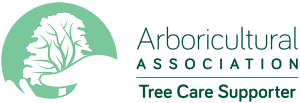Young Tree Maintenance
Video Guide
Arboricultural Association Technical Director John Parker runs over some important basic young tree maintenance.
Watering young trees in dry weather
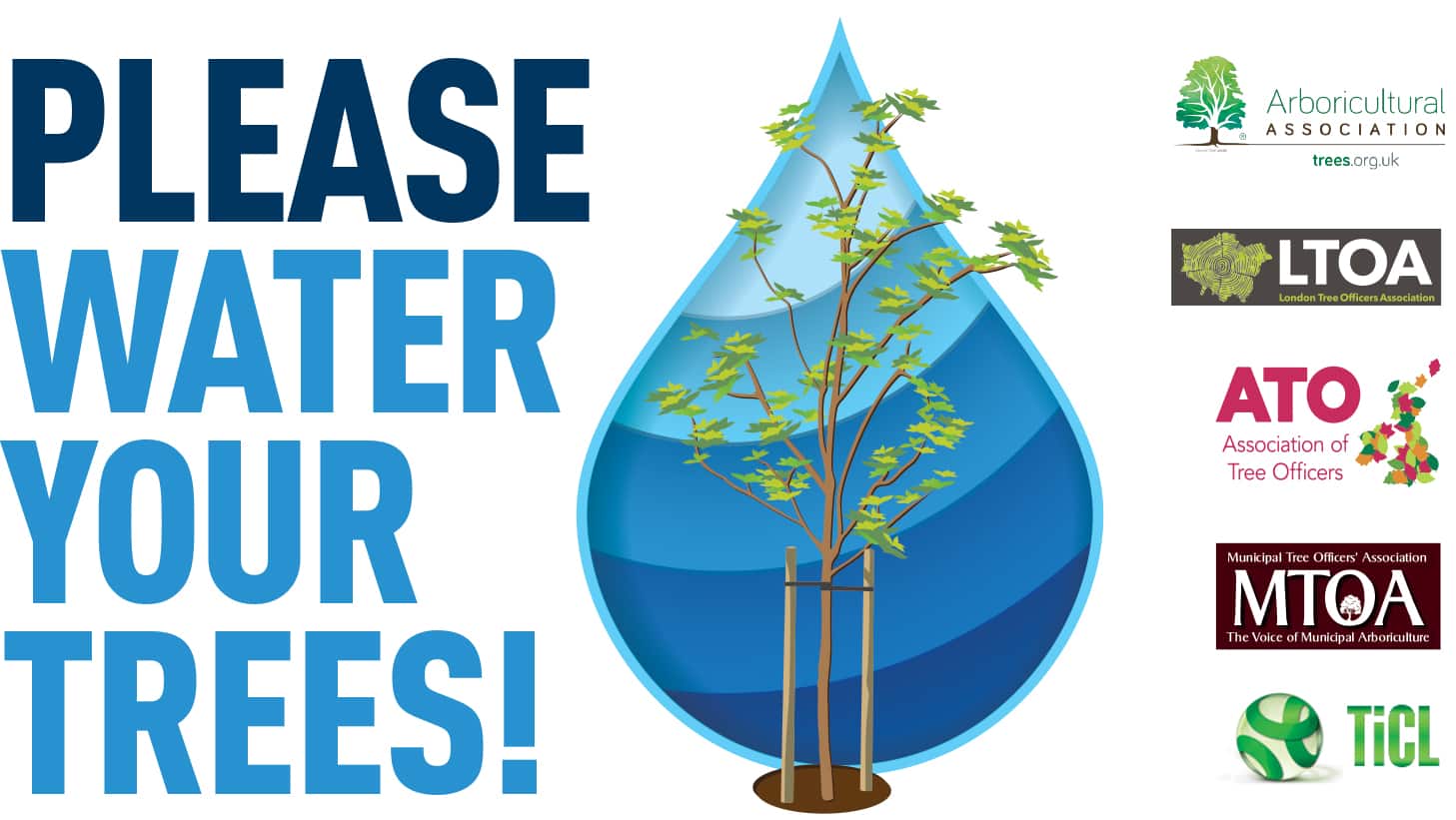
Newly-planted trees need to be watered regularly over the summer months if they are going to become established and thrive.
If you have a tree outside your house, or one that you pass on your daily walk, then you can help.
Requirements vary depending on a number of factors such as species and location, but a general rule is that they should receive at least 50 litres of water per week in May, June, July and August:
Please water regularly during dry periods with as much as you can – Every little helps
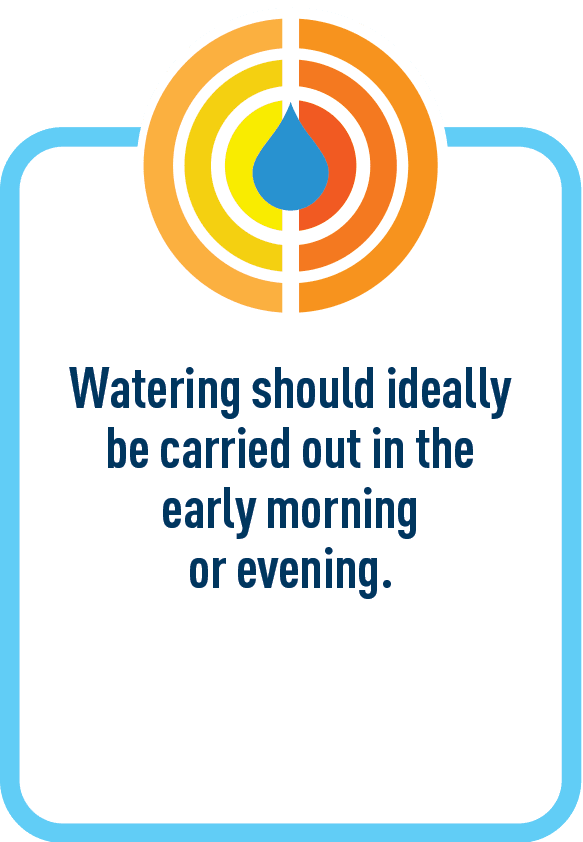
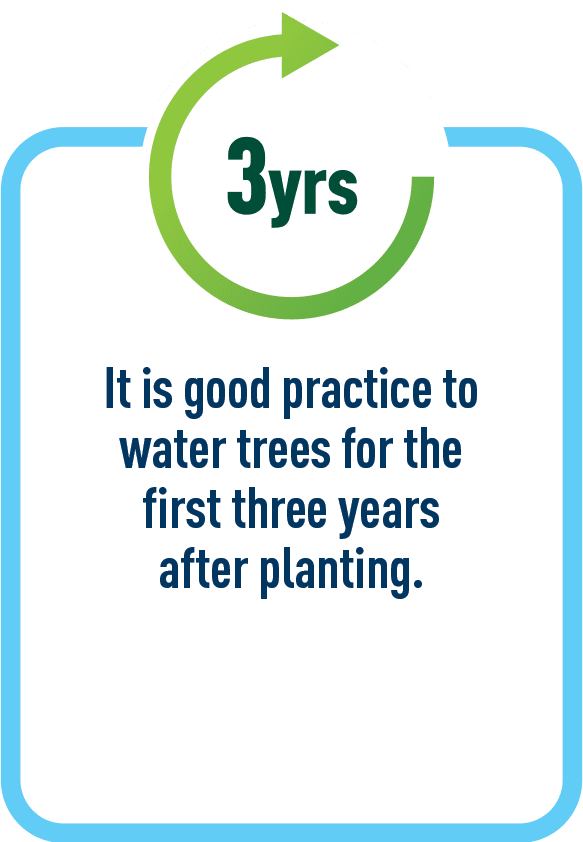
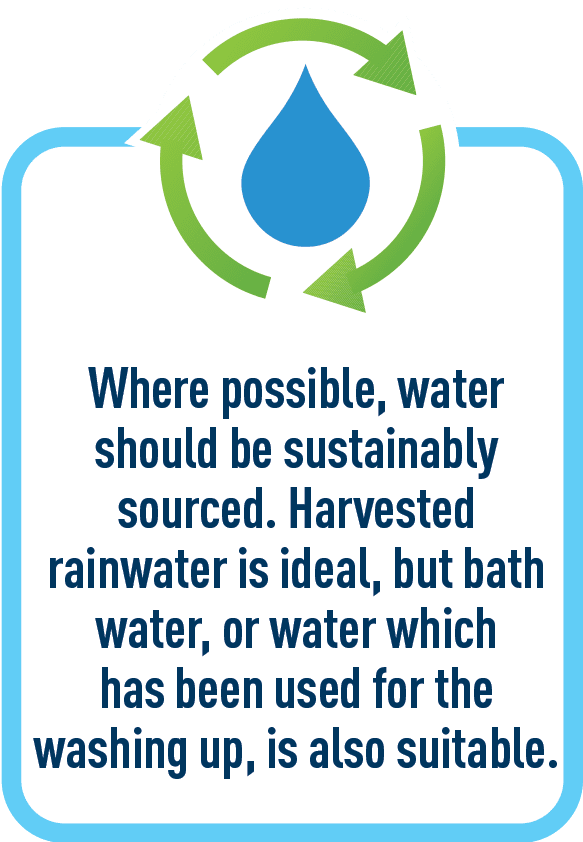
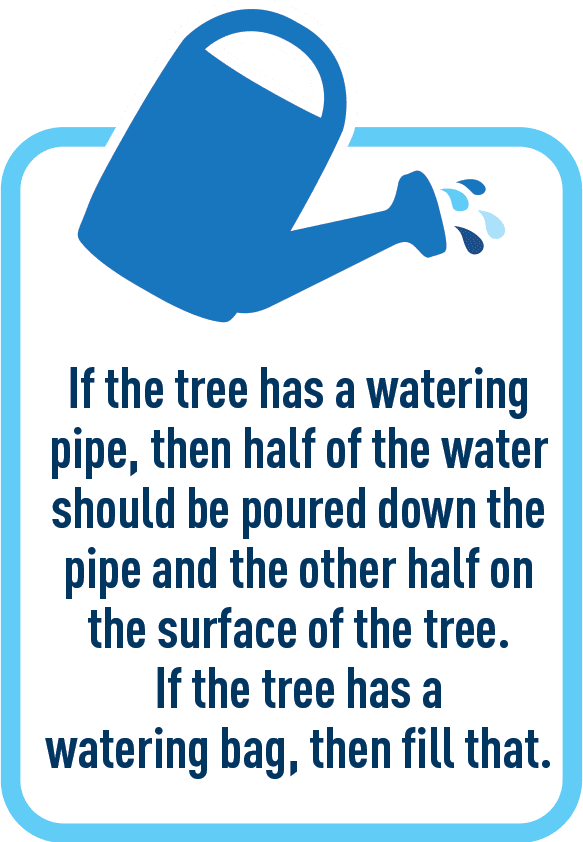
More information about tree watering can be found in the London Tree Officers Association (LTOA) publication Sustainable water management, available for free download at www.ltoa.org.uk
General information about trees and tree care can be found at the Arboricultural Association website www.trees.org.uk
Fersiwn Gymraeg (Welsh Version)
Campaign Translations
Polish
Spanish
Please Note:
If you would like to add your Local Authority or Community Group logo to the tree watering tags then please feel free to do so; however please ensure that this does not replace the logos of the Arboricultural Association, London Tree Officers Association Municipal Tree Officers Association and Association of Tree Officers – the original logos must remain on the tags.
Tree Pests and Diseases
Keeping our knowledge of the issues that threaten trees is crucial to the health of our future treescapes.
Here you can find out how to spot diseases already present, the threats we are most concerned about, and how to identify and report them.


Reporting Pests & Diseases
Learn how to report signs of dangerous tree pests and diseases.
Cases of ill health found in trees across the UK and Ireland should be reported through:
For the UK the Forestry Commission’s TreeAlert which can be found at:
treealert.forestresearch.gov.uk
In Ireland and Northern Ireland use TreeCheck which can be found at: www.treecheck.net
www.treecheck.net
There are many invertebrates like mites and nematodes, bacteria, phytoplasmas, water molds, plants (mistletoes) and viruses that can cause damage and need to be avoided through biosecurity measures.
More information
The Forestry Commission has also produced the following information about pests and diseases and associated biosecurity. Click a link below to find out more.
For more information on pests and diseases and how we can help reduce their spread, take a look at their website: www.gov.uk/guidance/prevent-the-introduction-and-spread-of-tree-pests-and-diseases
Information contained on this page are © copyright of the Forestry Commission and are used with their permission.
